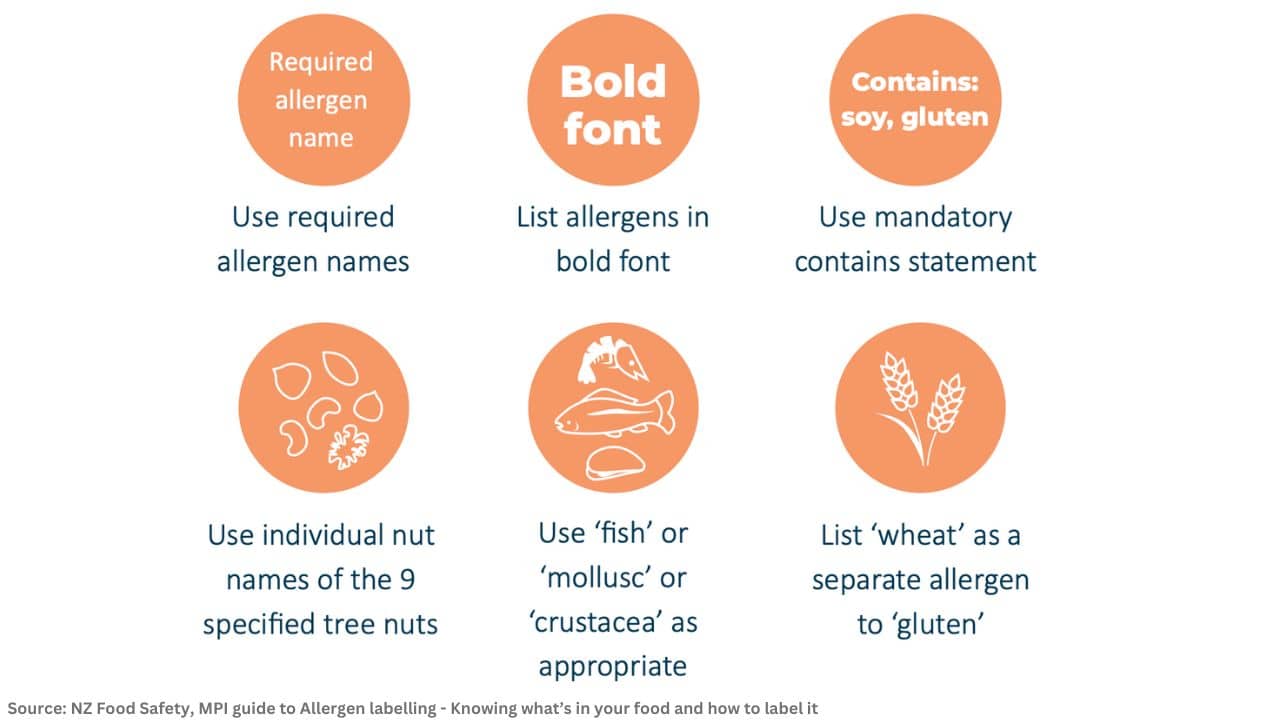
Food Labelling Compliance Alert: New Regulations Impacting Food Imports
3-minute read
Recently, Auckland-based importers of food products were fined a total of NZ$28,000 for their failure to translate food allergen declarations into English.
New Zealand Food Safety introduced stronger requirements for all food importers in the country. These changes clarify the responsibilities of food importers when bringing products into New Zealand to guarantee the safety and suitability of food for local consumers.
Ministry for Primary Industries developed “A Guide to Retail Food Labelling”.
This guide explains the labelling information that must be provided to customers about retail food and drinks.
What is a food label?
Food labels tell consumers important information about the food or drink they are consuming – to help them know which food and drink is right for them and if it is safe for them to eat/drink. There are rules for what information must go on these labels.
Purpose of this guide
This guide will help get food labelling right.
Food labelling must meet the rules of the Australia New Zealand Food Standards Code. Products could be recalled, or importers could be fined if they get this wrong.
Who is this guide for?
Importers who bring packaged food into New Zealand intended for sale to consumers
Manufacturers who make and sell packaged food intended for consumers
Packers who pack or re-pack food for retail sale
Caterers/ food service businesses that serve food to consumers
Retailers who sell pre-packaged food to consumers
Brand owners who are responsible for the food but don’t manufacture it
New Zealand Food Safety encourages all registered food importers to visit the Ministry for Primary Industries website to verify their compliance with the updated rules.
New rules for labelling allergens
There are new rules about labelling and identifying allergens.
Businesses have until 25 February 2024 to implement these new rules.
During the transition period, food businesses can meet either the existing allergen declaration rules or the new rules.
On 25 February 2021, new rules about labelling and identifying allergens were introduced by Food Standards Australia New Zealand (FSANZ).
The new Plain English Allergen Labelling (PEAL) rules will make it easier for consumers to identify what allergens are in food and help them make safe choices.
Here’s a summary of what to do under the new rules:

When do the new rules start?
25 Feb 2021: New rules were made
Businesses can choose to either comply with the existing allergen labelling rules or the new rules.
25 Feb 2024: Labels must be updated
Labels must be updated to meet new rules, and businesses must have trained their staff so the information they give customers meets the new rules.
Any food packaged and labelled before this date, under the existing rules, may be sold for a further 2 years.
25 Feb 2026: End of transition
End of transition so all food and drink sold in New Zealand must comply with the PEAL rules.
Check out ‘A Guide to Retail Food Labelling‘ and ‘Allergen labelling – Knowing what’s in your food and how to label it’ guides developed by MPI to find out more information.
The above information is intended as a guide only. Regulations can change without notice, and for more information, specific guidance, and questions about food labelling, rules and safety, please visit www.mpi.govt.nz/food-business, email info@mpi.govt.nz or call MPI on 0800 00 83 33.
Source: Ministry for Primary Industries
P.S. Easy Freight Ltd helps New Zealand importers & exporters to save money on international freight and reduce mistakes by guiding how to comply with Customs and biosecurity rules.
➔ Contact us now to learn how we can assist you.
